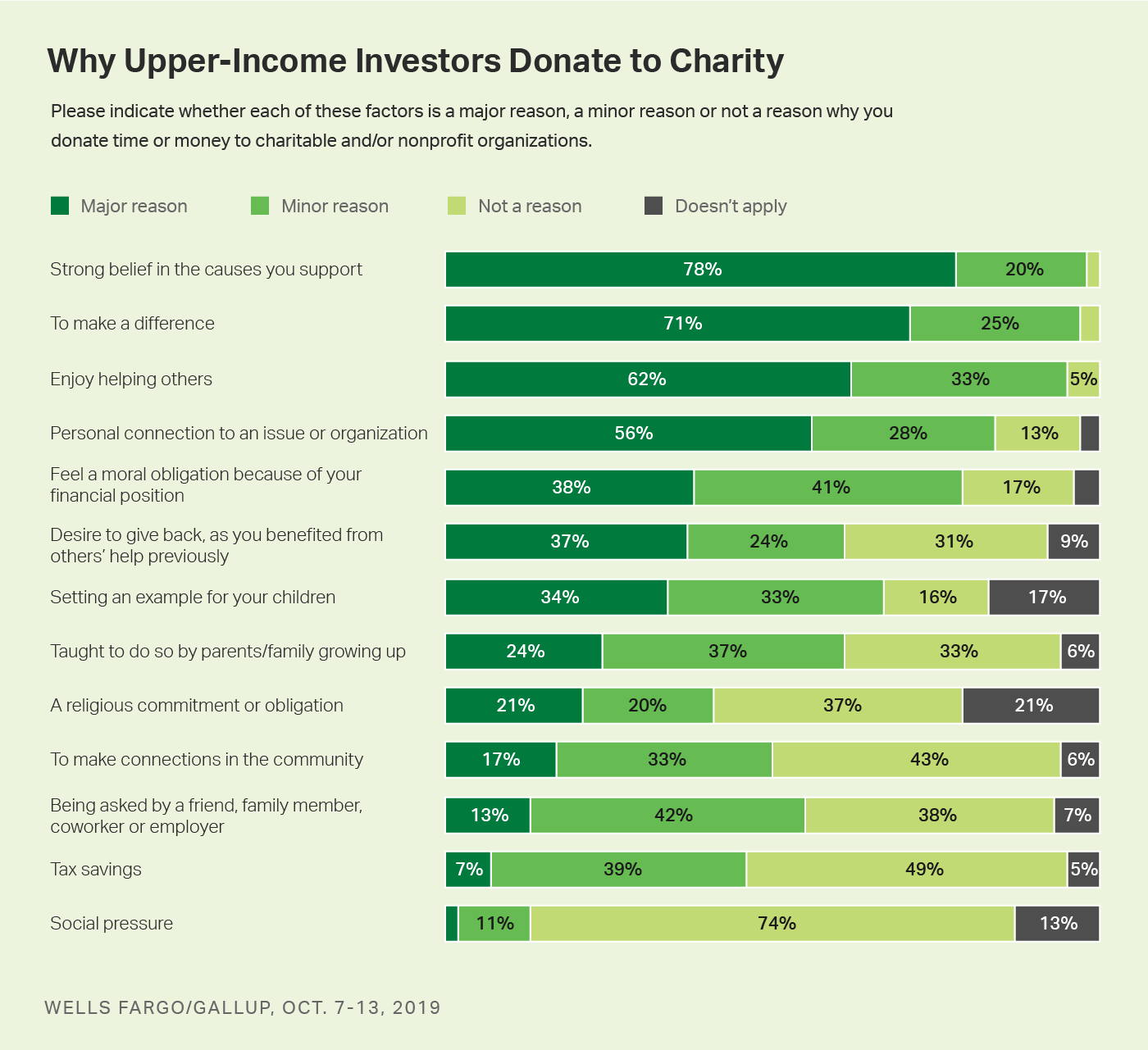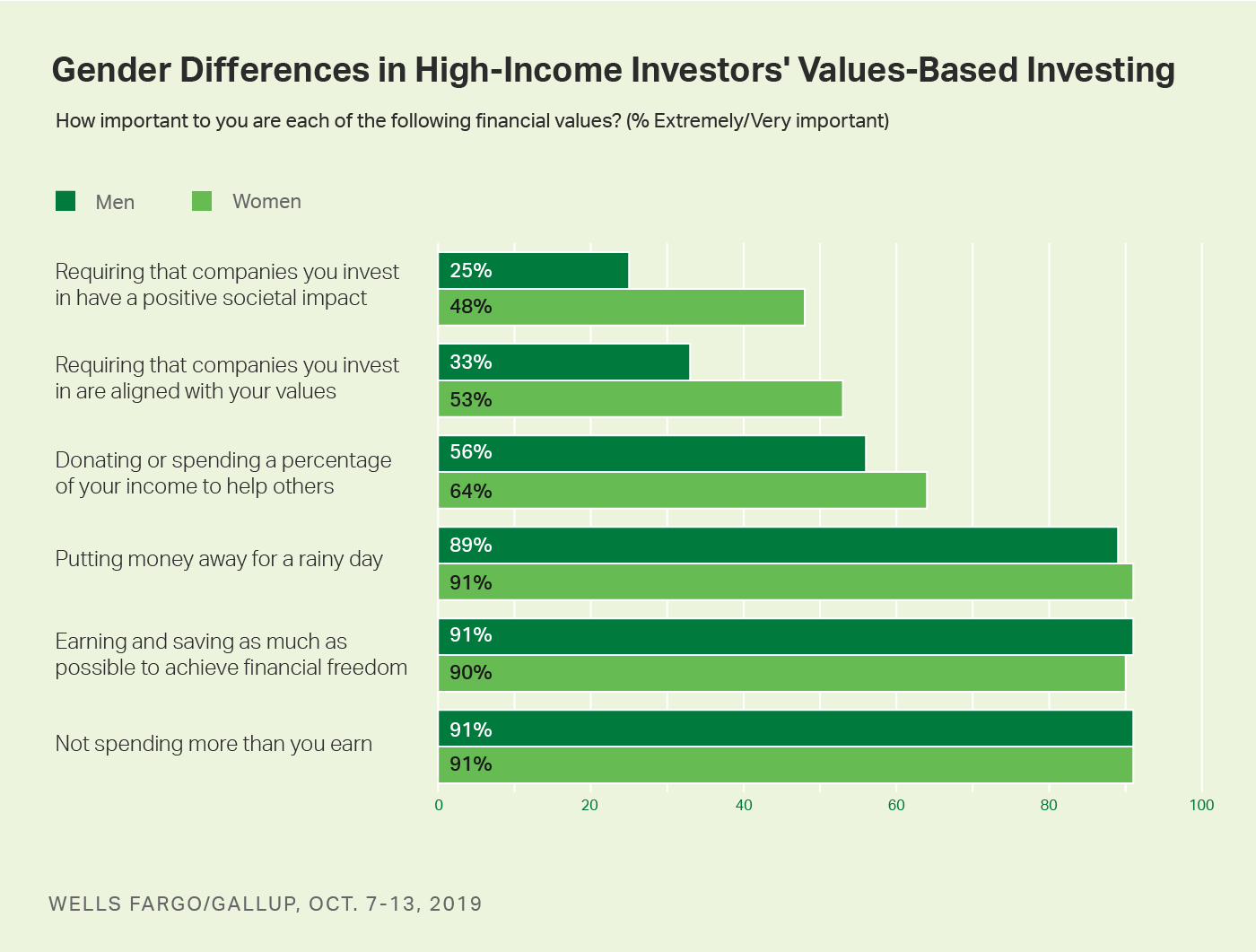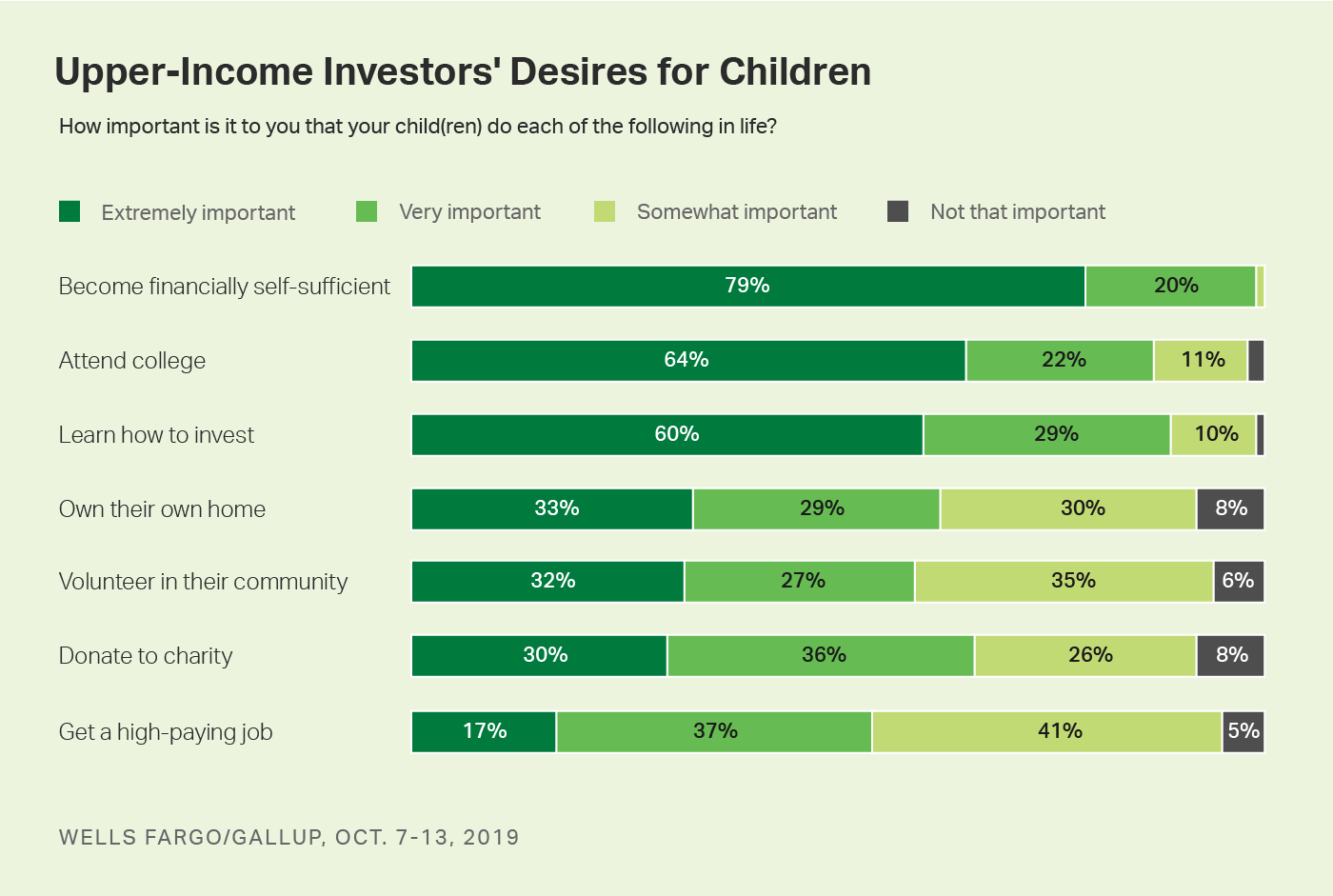Story Highlights
- 97% of upper-income investors donated money to charity in the past year
- Belief in a cause (78%), desire to make a difference (71%) biggest reasons
- 40% say political climate is causing them to donate more; 7% say less
WASHINGTON, D.C. -- With near unanimity, 97% of upper-income investors in the U.S. say they have donated money to a charitable organization in the past year, according to a Wells Fargo/Gallup survey of investors. Majorities of upper-income investors identify four factors as major reasons behind their decision to donate -- 78% strongly believe in the causes they support, 71% want to make a difference, 62% enjoy helping others, and 56% have a personal connection to the issue or organization.
Although less than half of upper-income investors say the following are major reasons behind their donations, majorities consider them to be at least a minor reason: moral obligation, desire to give back after benefiting from others' generosity in the past, setting an example for their children and being taught to do so by parents. Far fewer say tax savings and social pressure motivate them to donate.

These findings are based on the Wells Fargo/Gallup Investor and Retirement Optimism Index fourth-quarter survey, conducted online Oct. 7-13 using the Gallup Panel. The survey included 525 upper-income investors, who for this survey are defined as adults with $10,000 or more invested in stocks, bonds or mutual funds and with household incomes of at least $240,000 annually. These investors are equivalent to the top 5% of U.S. households nationwide.
Of the 97% of upper-income investors who have donated in the past year, 93% gave to non-faith-based charitable organizations, with an average donation of $5,500. Fewer, 59%, say they contributed to faith-based organizations. Upper-income investors are less likely to say they volunteered their time to a charitable cause than to say they donated money in the past year. Sixty-four percent volunteered for a non-faith-based organization, and 37% for a faith-based group.
Investors More Inspired to Give by U.S. Political Climate Than Other Factors
The current U.S. political climate is having a clear effect on upper-income investors' donations, as 40% of these investors say the political climate is causing them to donate more than they did before, while 7% say it is causing them to donate less.
By contrast, far fewer high-income investors (16%) say current economic conditions have resulted in an increase in their donations, while 10% say economic conditions have caused them to decrease their donations. In addition, 6% say they have donated more and 19% less because of the 2007-2009 recession, while 8% have given more and 17% less as a result of recent tax changes.
A majority of upper-income investors who self-identify as Democrats (54%) say they are giving more to charitable groups because of the current political climate, and 39% of self-identified independents say the same. However, only 18% of Republicans report higher donations based on the current political climate.
Women More Likely Than Men to Prioritize Values-Based Investing
Most upper-income investors consider charitable giving to be an important financial value, as 60% say that donating a percentage of their income to help others is extremely or very important. Although more upper-income investors assign the same level of importance to living within their means (91%) or saving money for a rainy day (90%), donating is more important to them than ensuring that the companies they invest in align with their values (42%) or have a positive societal impact (35%).
While men and women place equal importance on several measures, women are more likely than men to say donating a percentage of their income to help others is important -- 64% vs. 56%. The gender gap is even greater for two other financial values: By a 20-percentage-point margin, women are more likely to require that the companies they invest in be aligned with their own values, and by a 23-point margin, women are more likely to require that the companies they invest in have a positive societal impact.

Parents Rate Charity High as Goal for Children
Among upper-income investors who are parents, 99% say it is extremely or very important for their children to become financially self-sufficient. Likewise, 89% of these investors say learning how to invest and 86% say attending college is important. The following goals are also considered important to majorities of these parents -- donating to charity (66%), owning their own home (62%), volunteering in their community (59%) and getting a high-paying job (54%).

Learn more about how the Wells Fargo/Gallup Investor and Retirement Optimism Index works.




